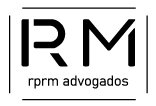Best Retirement Visa Lawyers in Porto
Share your needs with us, get contacted by law firms.
Free. Takes 2 min.
List of the best lawyers in Porto, Portugal
About Retirement Visa Law in Porto, Portugal
A Retirement Visa, also known as the D7 Passive Income Visa, offers foreign nationals the opportunity to live in Porto, Portugal, while enjoying their retirement. This visa targets individuals who can demonstrate stable, passive income streams, such as pensions or investments, to support themselves without working in Portugal. The D7 visa is especially popular because it provides a clear pathway to residency and, eventually, Portuguese citizenship. Applicants must fulfill specific financial, health, and accommodation requirements to qualify for this visa.
Why You May Need a Lawyer
While the Retirement Visa process may appear straightforward, there are several scenarios where legal assistance is highly recommended. Common situations include:
- Interpreting specific eligibility requirements or recent changes in immigration laws
- Preparing and verifying the accuracy of application documents
- Addressing issues with proving sufficient income or sourcing required documentation
- Responding to application denials or requests for further information from authorities
- Guidance on taxation, property purchasing, and long-term residency obligations
- Navigating the transition from temporary residency to permanent residence or citizenship
- Assistance with renewal processes or bringing dependents to Portugal under family reunification
A lawyer can help avoid common mistakes, speed up the approval process, and help you comply with all local legal requirements.
Local Laws Overview
Portugal’s immigration laws are governed by the Immigration Act (Law No. 23/2007) and its amendments, along with specific policies set by the Serviço de Estrangeiros e Fronteiras (SEF). Applicants for a Retirement Visa must prove:
- Stable passive income meeting or exceeding the national minimum wage (typically through pension, rental income, or investments)
- An official address in Portugal, demonstrated by a rental contract, property deed, or invitation letter
- Valid health insurance that covers the applicant in Portugal
- Clean criminal record (with apostilled police certificates from previous countries of residence)
- Full documentation translated into Portuguese and, often, certified by local authorities
Successful applicants receive a residence permit valid for two years, which can be renewed, eventually leading to permanent residency and citizenship eligibility. Compliance with stay requirements is mandatory, with residents needing to spend a majority of the year in Portugal.
Frequently Asked Questions
What is the minimum income required for a Portuguese Retirement Visa?
You typically need to demonstrate passive income of at least the amount equal to Portugal’s annual minimum wage. It is advisable to show higher amounts, especially if bringing dependents.
Can I work in Portugal with a Retirement Visa?
The D7 visa is intended for those with sufficient passive income, but it does allow you to work or freelance if you wish after you receive residency.
Do I need private health insurance for my visa application?
Yes. You must have valid health insurance covering all risks in Portugal, at least until you are able to access the public healthcare system.
Can I bring my spouse or children with me?
Yes, the D7 visa allows for family reunification. Each family member must submit proof of relationship and meet certain requirements.
How long does it take to process a Retirement Visa application?
Processing times can vary but generally take between 2 to 4 months, depending on the volume of applications and the completeness of your documentation.
Will my foreign pension be taxed in Portugal?
Portugal may offer tax incentives for retirees under the Non-Habitual Residency (NHR) scheme, but taxation depends on your specific circumstances and origin country. Legal advice on tax matters is strongly recommended.
What documents are required for the Retirement Visa application?
Generally required documents include a valid passport, proof of income, Portuguese tax number (NIF), proof of accommodation, health insurance, criminal record certificate, and application forms.
Is it necessary to hire a lawyer for my Retirement Visa application?
It is not mandatory, but working with a lawyer experienced in immigration law can help navigate complex rules, prevent delays, and maximize chances of approval.
What happens if my visa application is denied?
If your application is denied, you may appeal the decision or submit a new application after addressing the cause of rejection. A lawyer can assist in both situations.
How can I transition from a Retirement Visa to permanent residency or citizenship?
After 5 years of legal residency, you may apply for permanent residency, and after 6 years you can seek Portuguese citizenship, provided all requirements such as language proficiency are met.
Additional Resources
Several organizations and authorities provide valuable support and information for retirees moving to Porto, Portugal:
- Serviço de Estrangeiros e Fronteiras SEF - The official immigration and border services agency
- Instituto dos Registos e do Notariado IRN - The institute for legal documentation and certifications
- Local consulates and embassies of your country in Portugal
- Portuguese Social Security and tax authorities for pension and taxation guidance
- Portugal’s National Health Service SNS for information on healthcare access
- Legal advice centers and law societies in Porto for free or low-cost legal consultations
Next Steps
If you are considering applying for a Retirement Visa in Porto, Portugal, take the following steps:
- Assess your eligibility by reviewing income, accommodation, and health insurance requirements
- Gather necessary documents in advance and ensure they are translated and certified as required
- Contact an experienced immigration lawyer in Porto to review your situation and documentation
- Apply for the visa at the Portuguese consulate or embassy in your home country
- After arrival, attend your SEF appointment to finalize residency and obtain your permit card
- Keep track of renewal dates and requirements for long-term residency or citizenship
If you face challenges or have questions about any step, seek professional legal guidance. Legal advice can be invaluable to make your transition as smooth and successful as possible.
Lawzana helps you find the best lawyers and law firms in Porto through a curated and pre-screened list of qualified legal professionals. Our platform offers rankings and detailed profiles of attorneys and law firms, allowing you to compare based on practice areas, including Retirement Visa, experience, and client feedback.
Each profile includes a description of the firm's areas of practice, client reviews, team members and partners, year of establishment, spoken languages, office locations, contact information, social media presence, and any published articles or resources. Most firms on our platform speak English and are experienced in both local and international legal matters.
Get a quote from top-rated law firms in Porto, Portugal — quickly, securely, and without unnecessary hassle.
Disclaimer:
The information provided on this page is for general informational purposes only and does not constitute legal advice. While we strive to ensure the accuracy and relevance of the content, legal information may change over time, and interpretations of the law can vary. You should always consult with a qualified legal professional for advice specific to your situation.
We disclaim all liability for actions taken or not taken based on the content of this page. If you believe any information is incorrect or outdated, please contact us, and we will review and update it where appropriate.












